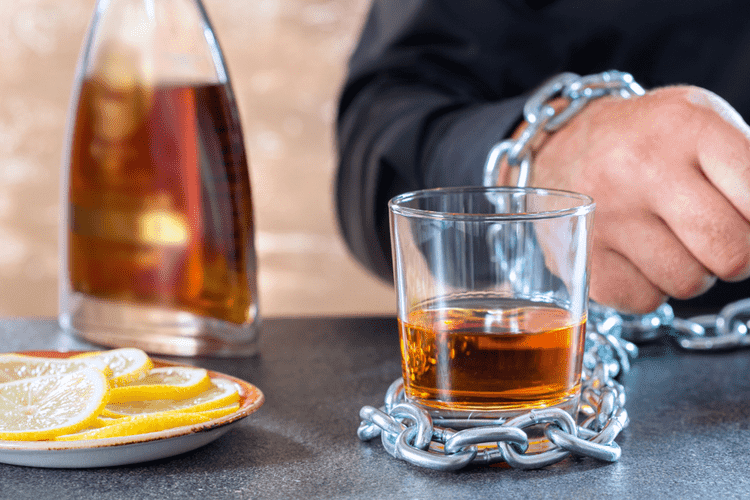Alcohol changes your brain chemistry, and when you drink heavily over a long period of time, your brain tries to adapt. If you suddenly stop drinking, your brain has to adjust again, causing these withdrawal symptoms. Considering this fact, any treatment methods that would be recommended to a person dealing with addiction to alcohol and anxiety will depend on the specific type of the disorder.
At this point in the addiction process, subjective negative affect predominates, especially during periods of sobriety and withdrawal. This later stage of addiction marks a shift from impulsive use driven by positive reinforcement to compulsive use driven by negative reinforcement. In this stage, compulsive substance use is aimed, in part, at decreasing the negative affect caused or aggravated by the allostatic reset in the brain’s stress and mood systems. A DSM-IV diagnosis of alcohol dependence required meeting at least three of seven criteria.12 The first two criteria were physical—development of tolerance to alcohol and development of withdrawal symptoms. The remaining five criteria were behavioral signs of dependence, such as spending a great deal of time obtaining, drinking, or recovering from the effects of alcohol and drinking more alcohol, or for longer, than intended. Alcohol has an effect on brain chemistry Рit can induce panic because of its effects on GABA, a chemical in the brain that normally has a relaxing effect.
Sunday scaries: How to beat Sunday night anxiety
Calls to any general helpline (non-facility specific 1-8XX numbers) for your visit will be answered by American Addiction Centers (AAC). Our representatives work solely for AAC and will discuss whether an AAC facility may be an option for you. Our helpline is offered at no cost to you and with no obligation to enter into treatment. Neither addictionresource.com nor AAC receives any commission or other does alcohol cause panic attacks fee that is dependent upon which treatment provider a visitor may ultimately choose. Admittedly, there are some evidences that booze helps reduce stress, which is down to its sedative properties in the central nervous system. Occasionally “unwinding” with small amounts of the substance may not necessarily be dangerous, but there is a certain tolerance that builds up when one starts to use alcohol.
- The decision to stop drinking alcohol was directly related to the sudden appearance of panic attacks.
- AddictionResource fact-checks all the information before publishing and uses only credible and trusted sources when citing any medical data.
- If you are worried about your drinking and don’t feel you can stop, you should seek professional advice or speak to a telephone helpline such as Alcoholics Anonymous or The Samaritans.
Although it may be tempting to ignore your symptoms, or to self-diagnose, the only way to access the resources you need to recover is by getting a clinical diagnosis. Anyone can experience anxiety—or “hangxiety”—after drinking, even if you aren’t dealing with alcohol dependence. However, if you find yourself frequently experiencing anxiety and regret after drinking, particularly after heavy drinking, it may be a sign of a more serious problem. Research shows that people with alcoholism find it difficult to recover from traumatic events.
Panic attacks and panic disorder
If you look at the biological side of things, it is well-known that alcohol causes a number of physiological symptoms such as dehydration, low blood sugar, and elevated heart rate. https://ecosoberhouse.com/article/genetics-of-alcoholism-is-alcohol-abuse-hereditary/ These may make a person feel uneasy, dizzy, and irritable, and may lead to a panic attack. Too much of some drugs such as caffeine, or even sugar can prompt a similar response.
AFib or panic attack? How to tell the difference – Medical News Today
AFib or panic attack? How to tell the difference.
Posted: Tue, 18 Jul 2023 07:00:00 GMT [source]
As a result, the best way to prevent panic attacks after drinking is to know your limits and avoid drinking to excess. Your body, however, is always looking to establish equilibrium, or balance. A heavy influx of alcohol can lead to your body blocking its own GABA receptors in an attempt to re-establish this equilibrium. With fewer GABA receptors available, your body can naturally absorb less GABA, which inhibits your ability to naturally calm down and can lead to panic attacks. To understand exactly why this happens, chemically, it’s important to understand the role of GABA—a neurotransmitter—in the brain and body. In the United States, “moderate” typically refers to two drinks a day for adult men and one for women.
How to prevent alcohol causing or worsening anxiety
Alcohol also disrupts the delicate balance of chemicals in the brain and body.
- Additionally, excess alcohol is defined as drinking more than 8 drinks a week (women) and 15 a week (men), or consuming alcohol if you are pregnant or younger than age 21.
- But unlike most food products, in the last century, alcohol has been wrapped up in nearly perpetual controversy over its moral effects and health implications.
- Studies have also been carried out to support this fact, and according to the Anxiety and Depression Association of America, at least 7% of Americans have anxiety related to alcohol usage.
- The whole situation can present a difficult period for all affected, including the person’s family members and close friends.
- Studies have found that heavy drinkers have increased cortisol levels due to alcohol’s effects on the body.
For example, medically oriented researchers might view subclinical negative affect as qualitatively rather than quantitatively distinct from diagnosed anxiety disorders. Similarly, it could be argued that dysregulated biological stress responses share little construct space with subjective negative affect and drinking to cope. However, as already noted, a dysregulated stress response is a known biological marker for the development of anxiety disorders and AUD, as well as for relapse. Research has found that individuals who have an alcohol use disorder and who attempt to withdraw from alcohol often meet the diagnostic criteria for panic attacks as well as for panic disorder and agoraphobia.
Alcohol misuse in the absence of anxiety
Cross-referencing and reconciling (if not integrating) discipline-specific approaches may reveal opportunities for synergy. However, restricting attention to a single diagnosis and its relationship to alcohol misuse does not align with more recent research. A key challenge to applying a comparative perspective across disciplines and time is the use of unique and evolving terminology and definitions for similar phenomena. Terms such as anxiety, anxiety disorder, depression, mood disorder, tension, stress, stress disorder, and negative affect are used differently across disciplines and time. The relationships among these constructs can be conceptualized as a Venn diagram, with the shared spaces representing overlapping constructs.


Comentarios recientes